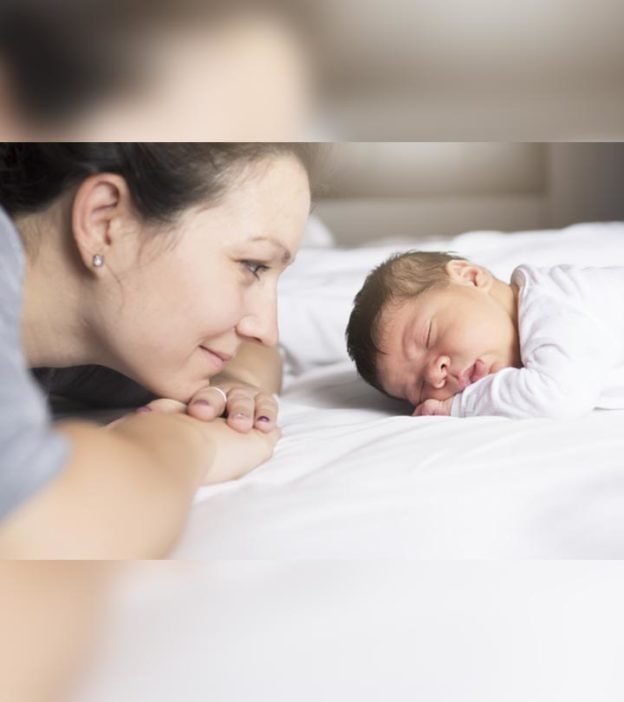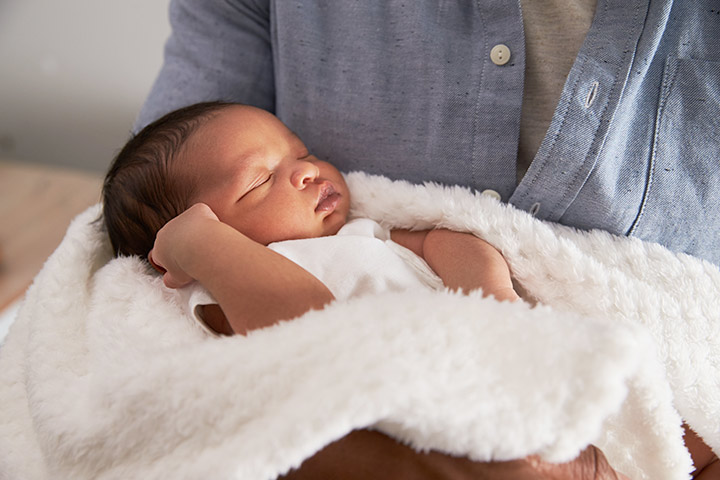
Image: Shutterstock
Sleep training is an important aspect of raising a child, and as a parent, you might start contemplating sleep training your child as early as a week after you bring them home! And why not?
After all, it can be incredibly tiring to go through those sleepless nights. Waking up at 3 am to a bawling, hungry baby who doesn’t even need a microphone for the entire neighborhood to hear what’s going on is quite stressing indeed.
However, you just can’t start sleep training your child whenever you want. You have to be careful with the timing, or you could cause more damage than good, which means handling a cranky baby waking up at all sorts of ungodly hours!
Here’s an age-by-age guide that can help you understand the right time to introduce your baby to sleep training-
1. Newborn – 2.5 months
At this tender age, your child does not understand the difference between day and night as they do not produce enough melatonin – the hormone that helps regulate sleep (1).
Babies also need more feeding sessions at this age, so it is recommended that you don’t start sleep training yet.
2. 3-4 months
This is when the development of your baby’s night sleep cycle takes place (2). Their overall sleep quality also improves as their separation anxiety reduces. They become more sociable at this age.
While you don’t exactly begin sleep training your baby yet, you can start coordinating their naps and sleep patterns with your own, as they’d have a slightly more predictable pattern by this time.
3. 4.5 – 5.5 months
Most experts recommend commencing sleep training at this age as this is when your baby can sleep 7-8 hours straight (3).
However, if you find sleep training your baby a challenge at this time, you can delay it to another six months. Your baby is still learning new skills every day and will eventually come around to being more receptive towards sleep training!
4. 6-8 months
The separation anxiety reduces considerably during this time as babies tend to focus on playing rather than watching you all the time.
You can start sleep training at this age using the Ferber method. Your baby won’t be as cranky when he/she wakes up at night and would thus be more inclined to getting sleep trained (4).
5. 9-11 months
Your baby understands that you’re still around even when you’re not in the room and will also start developing a proper routine around this time.
Hence, you should continue with your training. Do keep an eye for separation anxiety, however, which can make a comeback. Associate your presence with the soothing, cozy conditions that help your child fall asleep and sleep training will be much easier (5).
6. 12-16 months
Now that your baby has crossed the first year mark, they’ll focus more on speech learning and walking than on you.
They’ll also be way less clingy, which makes it an ideal time to either initiate or continue with the sleep training (6).
7. 17-21 months
Although kids learn to become independent when they become roughly 18 months old, they may still act needy from time to time. This is because they want you to be around as they go about exploring things and doing stuff they are proud of (7).
At this point, while it’s okay to continue with your existing sleep-training regimen, don’t start a new one. Also, be around when your child needs you without making them overly dependent.
Sleep training can be a very tricky thing, which is why you need to make sure that you start it at the right age, and apart from the age, you also have to make sure that you choose the right sleep training technique.
Two techniques are quite common- the rinse and repeat technique and the interval method (8), (9). Both of these techniques have been designed to help your baby sleep independently so that they can gradually learn to sleep without you in the room. There’s also the Ferber method, as mentioned earlier, which has been proven to be effective (10).
With that being said, patience and perseverance is the key to sleep training your child successfully! So keep calm, do the right things and know that your baby will learn to sleep well sooner or later. We wish you the best!












